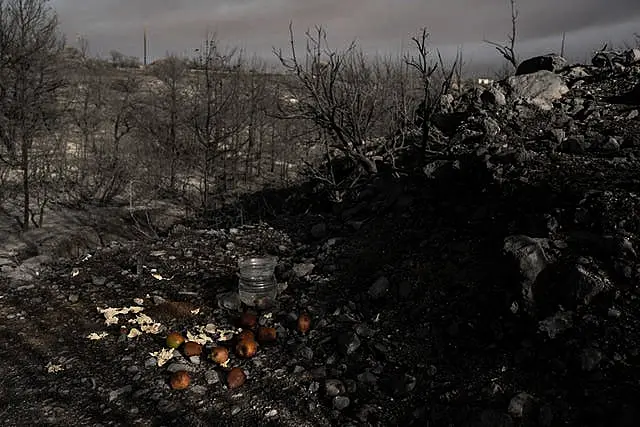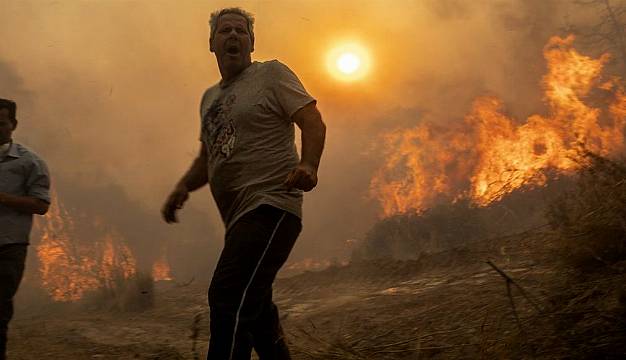Wildfires have reached the outskirts of Athens as strong gusts of wind cause flare-ups around Greece, disrupting motorway traffic and rail services.
The fires have raged across parts of the country during three successive Mediterranean heatwaves over two weeks, leaving five people dead, including two firefighting pilots, and triggering a huge evacuation of tourists over the weekend on the island of Rhodes.
Water-dropping helicopters and a ground crew were called early on Thursday to a blaze in Kifissia, just north of Athens, which was quickly put out.
Near the central city of Volos, a wildfire burned on two fronts, forcing a section of Greece’s busiest motorway to shut for several hours, while national rail services passing through the area were delayed.
Firefighters also battled flames on Rhodes for a 10th successive day, while flare-ups were reported on the island of Evia.
The World Meteorological Organisation and a European Union climate change service reported on Thursday that temperatures in the month of July set a new global record.
As Southern Europe fights extreme heat and wildfires, parts of central Europe have been hit with winter conditions. Sub-freezing temperatures, frost and snow have been reported in the Tatra mountains, which run through Poland and Slovakia.
In Italy, firefighters battled brush fires in the southern mainland regions of Calabria and Puglia, as well as the islands of Sicily and Sardinia, helped by temperatures dropping into the low and mid-30s. Sicily remained the focal point, with fires continuing to burn near the capital, Palermo, as seven aircraft were engaged to douse the flames.
“Without doubt, we can see that all across the Mediterranean the climate crisis is here and it’s affecting us all more strongly than perhaps even scientists had warned us about,” Greek prime minister Kyriakos Mitsotakis said on Thursday during a meeting with the country’s president, Katerina Sakellaropoulou.
Wildfire carbon emissions for July in Greece were the highest by a huge margin — totalling over one metric megaton and doubling the previous record — since records started 20 years ago, according to the European Union agency that analyses satellite data, the Copernicus Atmosphere Monitoring Service.
“Unfortunately, it is not all that surprising, given the extreme conditions in the region,” said Mark Parrington, a senior scientist at the agency.
“The observed intensity and estimated emissions show how unusual the scale of the fires have been for July relative to the last 20 years of data.”
In Athens, at a ceremony held at the defence ministry, senior members of the armed forces paid tribute to the two pilots killed in a firefighting plane crash this week.

Captain Christos Moulas and Lieutenant Pericles Stephanidis died during a low-altitude water drop on the island of Evia.
Defence minister Nikos Dendias said the operators showed “self-denial in the line of duty”.
“Greece today is in mourning. Their memories will live on,” he said.
Funeral services for the two airmen will be held in northern Greece later on Thursday and on the island of Crete on Friday.







